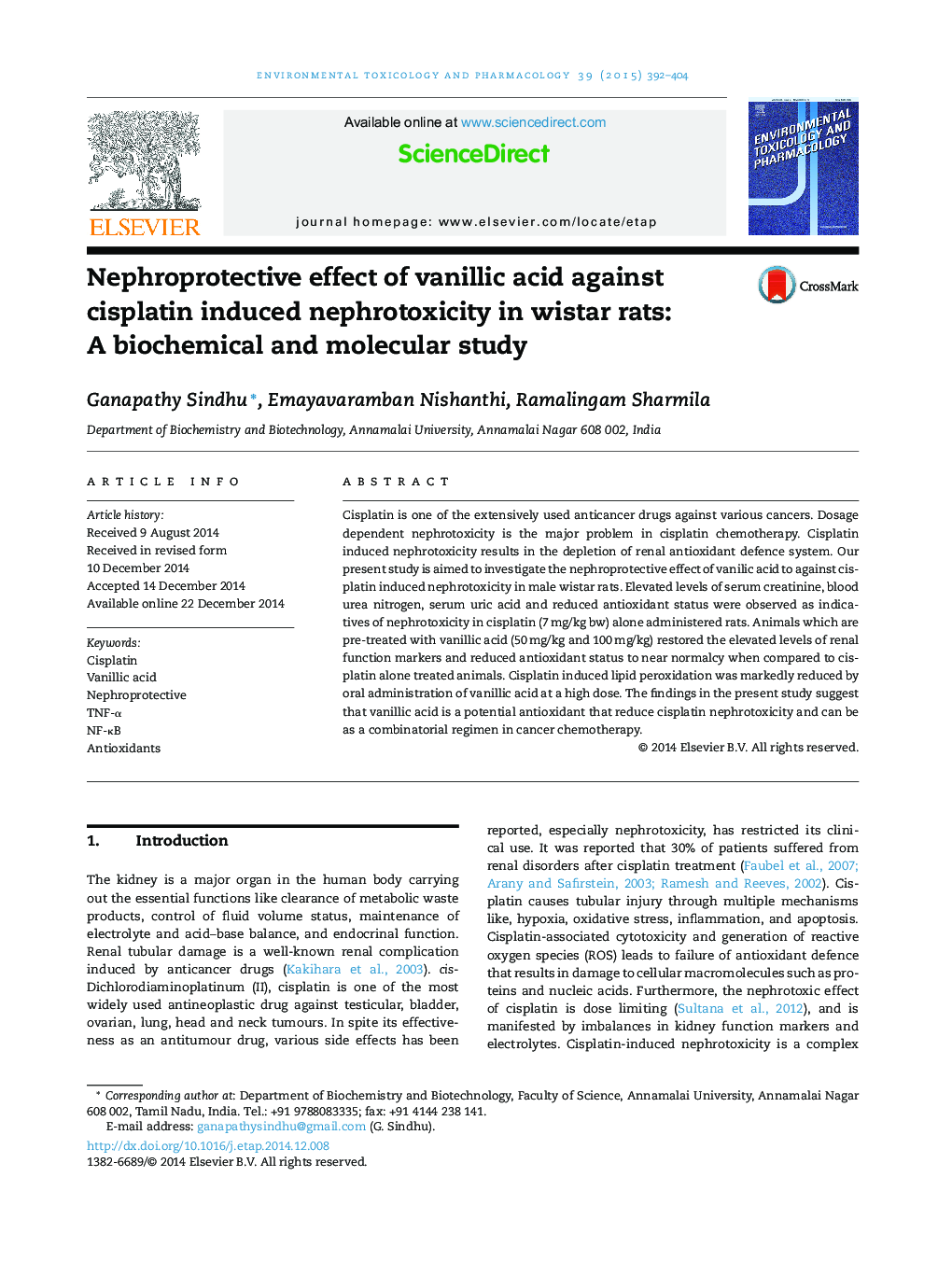| Article ID | Journal | Published Year | Pages | File Type |
|---|---|---|---|---|
| 2583298 | Environmental Toxicology and Pharmacology | 2015 | 13 Pages |
•We use animal model to screen protective effects during toxicity.•We adapt both biochemical and molecular parameters to determine the effects.•Gene expression studies corroborate with biochemical findings.•Histological view supports the dose dependant protective effects of tested compound.•In future this study will be extended in the field of combination/alternative therapy.
Cisplatin is one of the extensively used anticancer drugs against various cancers. Dosage dependent nephrotoxicity is the major problem in cisplatin chemotherapy. Cisplatin induced nephrotoxicity results in the depletion of renal antioxidant defence system. Our present study is aimed to investigate the nephroprotective effect of vanilic acid to against cisplatin induced nephrotoxicity in male wistar rats. Elevated levels of serum creatinine, blood urea nitrogen, serum uric acid and reduced antioxidant status were observed as indicatives of nephrotoxicity in cisplatin (7 mg/kg bw) alone administered rats. Animals which are pre-treated with vanillic acid (50 mg/kg and 100 mg/kg) restored the elevated levels of renal function markers and reduced antioxidant status to near normalcy when compared to cisplatin alone treated animals. Cisplatin induced lipid peroxidation was markedly reduced by oral administration of vanillic acid at a high dose. The findings in the present study suggest that vanillic acid is a potential antioxidant that reduce cisplatin nephrotoxicity and can be as a combinatorial regimen in cancer chemotherapy.
